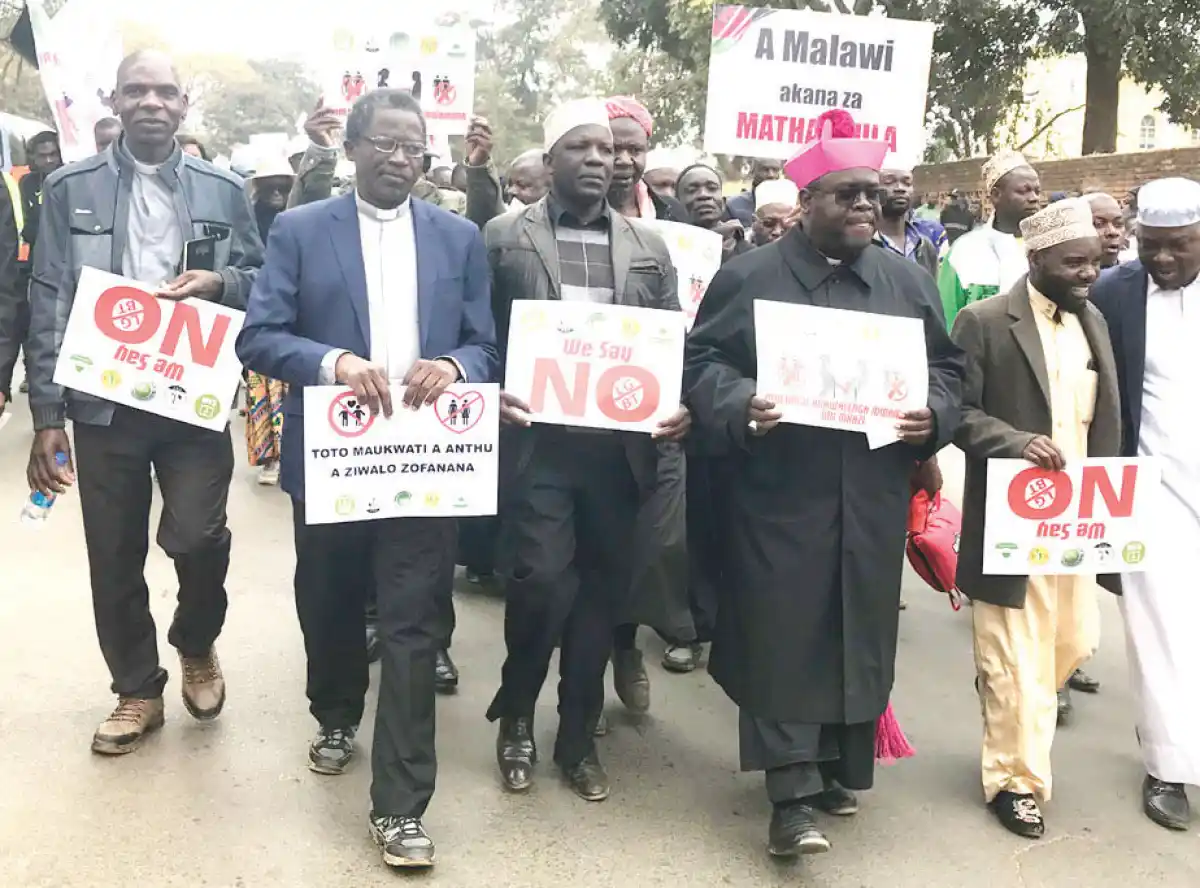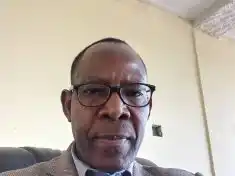

By Isaac Salima:
It was a cold day Friday in Blantyre but the case of The Netherlands national Jan Willem Akster and Malawian transgender individual Jana Gonani attracted hot and significant interest.
Akster and Gonani were challenging the country’s laws, specifically sections 153 and 156 of the Penal Code, that ban same-sex unions.
Section 153 of the Penal Code says that any person who has carnal knowledge of any person against the order of nature shall be guilty of a felony and shall be liable to imprisonment for 14 years.
Section 156 says that any person who, whether in public or private, commits any act of gross indecency with another person of the same sex shall be guilty of a felony.
Same-sex unions are a highly contentious issue in Malawi, often receiving vehement open opposition from various quarters including religious leaders.
In the likelihood of a ruling that would support applications like those of Akster and Gonani, that would mean legalisation of same sex marriages in Malawi.
It would also mean gay, bisexual and transgender, lesbian and intersex practices would be allowed in Malawi.
So yesterday, the court was filled to capacity with members of the general public, civil society organisations and the clergy to witness what could potentially be a defining moment.
For about six hours the three-member panel of High Court judges consisting of lead judge Joseph Chigona, Vikochi Chima and Chimbizgani Kacheche took turns in reading the judgement.
Sitting as a Constitutional Court, they dismissed Akster and Gonani’s case.
Among their submissions, the claimants said most people in minority groups in Malawi face discrimination.
They said such people do not report to the hospital when they are sick and they end up committing suicide.
In the ruling, the court said Akster and Gonani did not provide enough evidence backing their claims.
It also said they failed to provide evidence on how they were discriminated against by the country’s laws as the stand at the moment.
In addition, they lacked sufficient interests to pursue the matter, according to the court.
Reading the judgment, Chigona said courts do not deliver judgement on the basis of how the public views the matter. Rather, it bases its decisions on what is provided in the laws.
The court left it to the Akster and Gonani to move Parliament to review the laws if they are not satisfied with the decision of the court.
Gonani’s lawyer Bob Chimkango said that they are not happy with the ruling.
“We have observed a lot of things [on the ruling] but we will wait for the perfect judgement so that we understand it deeply and thereafter we will advise our client on how to proceed,” Chimkango said.

Spokesperson for the Ministry of Justice and Constitutional Affairs Frank Namangale said they are pleased with the ruling “because the court has agreed with us.”
Akster was arrested in 2021 and is answering, before lower court, charges of sexually abusing some nine children at an orphanage where he was working as a Finance Director.
He is being accused of molesting students and employees at Timotheos Foundation where he once worked in Blantyre.
He was released on bail where he sought the Constitutional Court’s interpretation on the matter.
During the hearing, he told the court that he was not gay but was just unmarried and that he just wanted to protect the people’s rights including homosexuals.
For Gonani, in December 2021, he was convicted by Senior Resident Magistrate Court in Mangochi of offences of obtaining by false pretences and unnatural offences contrary to provisions of the Penal Code.
Gonani is currently serving an eight-year jail term at Chichiri prison.
Gonani through his lawyers complained that he was made to undress when he was arrested at Mangochi police to prove that he was female.
In July last year, amid the case being heard in court, local religious leaders led nationwide street protests against same-sex marriages in the country.
Archbishop Thomas Luke Msusa who led the protests in Blantyre was quoted in the media as saying same-sex marriages are a sin.
“If we change the way we live as a family, it means we will cease to exist,” he said to Voice of America.
“If we continue to marry a man with a man, surely the offspring, no children will come, then no life in the world, no life in Malawi,” he said.





0 Comments